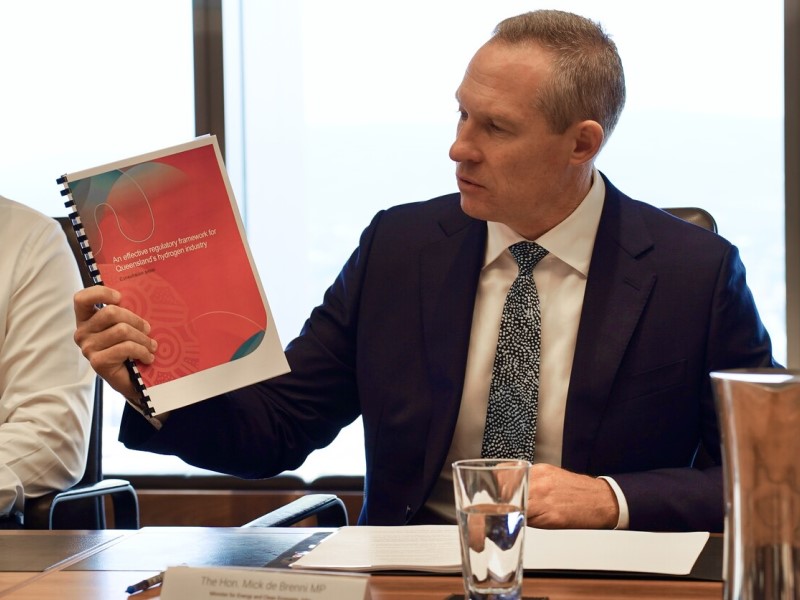A standalone hydrogen act is being considered in Queensland to regulate new production and storage facilities as a part of the state’s plans to become a global exporter.
On Tuesday, the Miles government began consulting on ‘an effective regulatory framework for Queensland’s hydrogen industry’, canvassing several options for reform put forward by the state Department of Energy and Climate.
These include new arrangements for a renewable hydrogen production licence and a new framework for regulating hydrogen storage facilities to help support industry development.
The consideration of regulatory reform for the hydrogen industry follows the passage of legislative amendments last October that permitted the use of natural gas pipelines for transporting hydrogen.

“After a whole-of-government investigation into the regulatory frameworks applicable to the hydrogen value chain, we’ve identified a range of potential enhancements that could accelerate the development of a safe and robust hydrogen industry,” Queensland’s Minister for Energy and Clean Economy Mick de Brenni said.
The consultation does not consider regulatory frameworks for hydrogen produced from fossil fuels or blue hydrogen, which adds the use of carbon capture and storage, as these are already in place, according to the consultation paper.
The paper flags that the scale of renewable energy required to support a hydrogen export industry could be “in excess of 40GW…in Abbot Point and Gladstone alone”, almost double the 25GW of renewable energy needed to decarbonise the state’s energy grid.
Under the Queensland Energy and Jobs Plan, the state is committed to generating 70 per cent of its energy through renewables energy by 2032 and 80 per cent by 2035.
Given the competing demands on renewable energy, a potential option for reform is the introduction of a hydrogen generation license (HGL) to authorise the “construction, installation, operation, maintenance and decommissioning of a renewable hydrogen production facility”.
The licenses could require holders to demonstrate they have secured access to renewable energy for their needs from an existing or related development to help keep pressure off the electricity network and the government’s wider energy goals.
The consultation paper is seeking views on whether a HGL regime could fit under the Electricity Act or require a stand-alone Hydrogen Act.
The licensing of hydrogen storage is another regime being considered for inclusion in a standalone hydrogen act. There are currently no provisions permitting underground storage of hydrogen, with existing legislation effectively confining hydrogen storage to tanks or similar physical structures.
The world’s first standalone hydrogen act was passed in South Australia in November 2023 and focused on technology agnostic regulation for hydrogen and renewable energy projects for the whole project life cycle.
Consultation on the Queensland hydrogen industry regulatory reform closes on March 1, with two online information sessions to be held in February.
Queensland is also expected to start updating its Hydrogen Industry Strategy soon, with the current plan outlining actions for 2019 to 2024.
Do you know more? Contact James Riley via Email.

